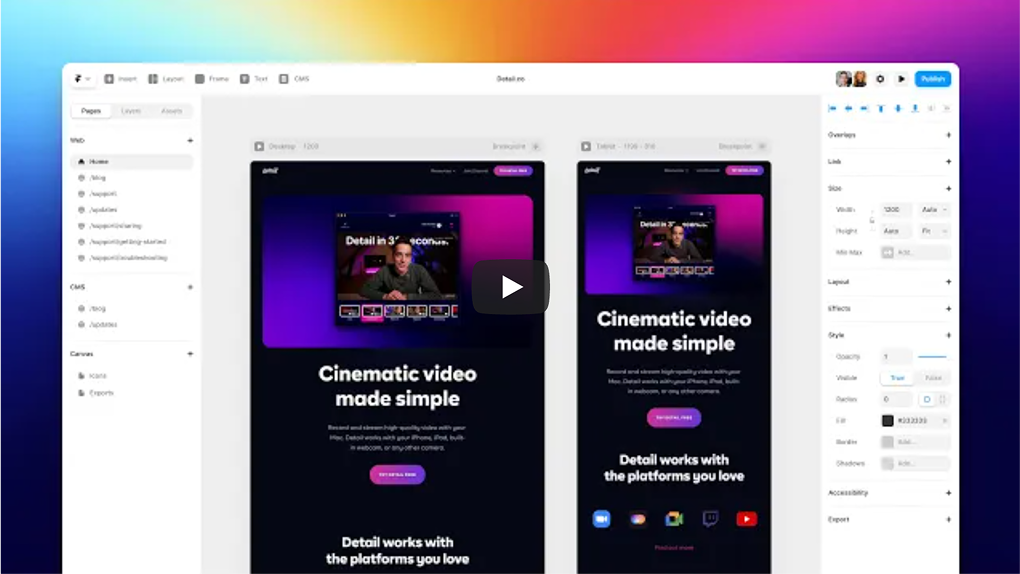
Enabling a Sense of Purpose in Organizations
February 16, 2023

An individual’s success and purpose have always been deeply linked because of their ability to enable each other. In any organization, in order to build a high-performing workforce, it is critical to embed a shared purpose within the organization. We’ve in the past written a lot about purpose. This week, we got together with a panel of experts to discuss how enabling a sense of purpose in organizations can overall impact organizational productivity.
The conversation was with Rachele Focardi, multigenerational workforce strategist and Geetika Dang, Management Consulting Principal (Talent & Organizational Consulting) at Accenture Strategy. Both speakers brought in a unique perspective about the world of work and the importance of power skills in building workforces that are equipped for the future of work.
Watch the full conversation here.
Purpose and its layers
The topic in itself is layered and has a lot of different aspects and factors to it. However, for organizations to approach purpose from whichever direction they might see fit, they need to focus on empowering people to perform at the workplace. The perennial question that comes up here is that has purpose always been important to organizations or is it now that the emphasis on building people organizations is centerstage that the narrative is shifting.
Rachele shared that the concept of purpose has really changed and evolved over the last couple of years. She elucidated, “My focus is on helping organizations bridge the generational divide and purpose is an interesting one because I think all young generations are extremely purposeful.” This insight deserves a pause. The younger generations have been extremely vocal about working with organizations that focus on more than functional work. “One of the biggest issues actually within generations or organizations is actually this idea that the young generations are very purposeful and they want to work on things that are bigger than themselves,” added Rachele.
Most older generations are considered unpurposeful. However, that’s not entirely true because the older generations have led change to the extent where we reap its benefits today. It is with time and the rigmarole of corporate life, that their sense of purpose has taken a backseat. The pandemic changed the core of an employee’s relationship with their employer. The workforce of today feels a need to realign their career to a greater sense of purpose. So, all of a sudden the older generations have had the opportunity to re-embrace a sense of purpose that was there always, but was probably long lost.
Geetika touched upon a Bersin study that she was a part of back in 2018. At the time they primarily spoke to people heads to understand how organizations were navigating from being profit driven to being purpose led. Through the course of the study, they realized that organizations that were purpose driven were also more interested in understanding whether the employees’ purpose and the organization’s purpose were aligned. That in fact automatically led to Improvement in performance, employee experience, engagement and a lot more. Geetika stated that as a result, today purpose has become extremely important.
“If you remember the World Economic Forum, everybody was talking about sustainability. Today everybody is talking about climate change. At the end of the day, your organization is a reflection of your people and what you are standing for. Are you standing for the right causes? This matters today,” elaborated Geetika.
The fact that most organizations are coming to terms with today is that if you move away from profit and towards purpose, it naturally leads to a lot of improvement in business metrics that matter. The big question here is how?
Geetika explains, “Purpose helps people actually engage and more often than not optimizes the full potential of the entire workforce. How that actually happens is because once you’re aligned and understand the whole purpose of where the organization is coming from, the entire workforce ends up being more engaged, motivative and productive. Purpose helps build a culture of excellence and it also helps drive innovation and ultimately leads to performance.”
The post pandemic workplace study 2022 showed that 35% to 45% of employees across generations want to realign their career to a greater sense of purpose.
Articulating purpose
How do you help organizations define and articulate purpose?
There are organizations that just have a purpose in their description. Then there are many companies, organizations and industries that have a harder time with that. However, many of these companies are actually building a task force within the organization of people that are passionate about purpose. They’re trying to make the world better by developing humans inside and outside of our work. If the topmost leader of an organization has a certain vision, how does it percolate down? This is where change happens.
“Making sure that they’re bringing everybody into the conversation and ensuring they’re equally convinced and engaged in making sure that we are bringing that change automatically is how any change will percolate down to the rest of the organization,” said Geetika.
Purpose and Growth
The pandemic showed us that a lot of the challenges we’re facing are interconnected, and we can’t solve those challenges alone. The ability to collaborate and work with diverse people has become absolutely critical. The glue that holds people together, no matter what their background or generation is linked to purpose.
“Collaboration leads to a 35% chance to beat the competition, according to research. Decision making is faster, innovation is much stronger and the chance to become a fast growing company is much stronger. When you look at what facilitates this, you realise that it’s all teams that are connected, that understand each other, that value each other’s diversity. That requires power skills to be able to frankly understand one another in an environment where people are actually encouraged to be themselves as opposed to, you know, fit a specific mold. This is possible only in teams that are purposeful,” shared Rachele.
In conclusion, the one thing that stood out amidst this discussion was that everybody wants to be successful, and feel that they’re working on something bigger than themselves. If an organization is able to articulate that for them and is able to ensure that they can articulate it themselves, then any team is going to see and witness a level of growth that is unprecedented.



